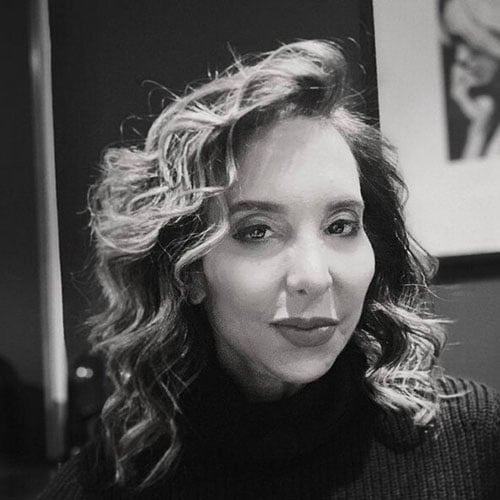
As I was gently nudged around the packed lobby of the Brooklyn Academy of Music (BAM) on March 30, the final night of the Batsheva Dance Company’s sold-out run, I found myself agreeing with a young woman with purple hair who was quite vocal in blaming the elegant mob scene on BAM’s disorganization.
But I soon realized that BAM wasn’t disorganized at all. The 2,000-plus people in attendance were being a bit aggressive in finding their seats simply because they didn’t want to miss a second of Israeli choreographer Ohad Naharin’s latest work, “Venezuela.” What was most astonishing was that more than half of the passionate crowd looked like people I would have expected to see outside with signs calling for an Israel boycott. I even spotted two keffiyehs.
The Tel Aviv-based Batsheva — founded by Baroness Batsheva de Rothschild in 1964 — has long held a preeminent place in the dance world, both critically and popularly. Last September, after nearly 30 years as Batsheva’s artistic director, Naharin handed the reins to Gili Navot, a former dancer with the company, while he assumed the position of house choreographer. As the lights dimmed in BAM’s gorgeous Beaux Arts Howard Gilman Opera House, the music began with solemn Gregorian chants and the curtains rose on a group of dancers in still life. The audience’s sacred silence was, I imagine, what rabbis pray for.
“The young audience members’ adoration … pointed to an important idea: Israel should be exporting more of its artistic genius.”
Since this was my first time seeing Batsheva — my first two loves, Israel and dance, merging with ethereal intensity — my emotional sensors were already on high alert. What I wasn’t expecting was the spiritual beauty that laced through Naharin’s signature style: sensual explosions of movement, kaleidoscopic raw energy, fearless visceral physicality. The stillness of the opening scene quickly erupted into what my dance teacher used to call controlled chaos.
“Venezuela” comprises two, 40-minute sections placed in juxtaposition — the same choreography but different music, lighting, dancers and overall feel. Naharin won’t say why it’s called “Venezuela,” but it apparently has nothing to do with the country’s current situation. The work made its debut in Tel Aviv in 2017.
If there was a political message, it was cryptic. One of the last scenes included cloths with the colors of the Palestinian flag. Was the second half what history would have been like if the Arab countries had accepted the United Nations partition plan in 1948? Perhaps. The music, though raunchy, definitely took an upbeat swing in the latter sequence. Whatever his political message, Naharin clearly believes that the point of art is to create art, not spout politics.
Naharin’s fearless embrace of beauty — believing that innovative work is a way to move the trajectory of beauty forward — will also ensure that his work, known for pushing boundaries, will ultimately fall into that difficult category of “timeless.”
Throughout that night’s 80-minute performance, the audience remained transfixed, mesmerized. After a performer’s final primal scream, the audience rose to give the 18 dancers a well-deserved, multiple-curtain-call standing ovation.
I have no illusions that if Batsheva had performed at New York University or Columbia University, there would have been anti-Israel protests, just as there were at the University of Colorado in Boulder, Colo., the week before. But the reception at BAM — known for its progressive artistic programming — should give all of us pause.
The young audience members’ adoration trumped whatever else they had learned about Israel and pointed to an important idea: Israel should be exporting more of its artistic genius. Doing so won’t stop the Omars and Sarsours from spouting lies, but it will do precisely what they fear: humanize Israelis.
If I had to sum up Naharin’s message in “Venezuela,” it would be this:
Life can be exquisitely harsh. One needs to work to find the beauty and the meaning, but they’re there. And once you change the music — the narrative — you can see the details far more clearly.
Karen Lehrman Bloch is an author and cultural critic living in New York City.





















 More news and opinions than at a Shabbat dinner, right in your inbox.
More news and opinions than at a Shabbat dinner, right in your inbox.